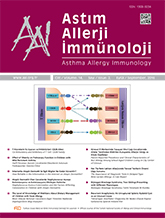


T cells that play role in cell-mediated immunity must be activated in order to generate immune responses. The two signals are required for T cell activation. The first of these signals is provided by the antigen. The second signal is provided by the co-stimulatory molecules. For many years it was believed that T cells do not require co-stimulation for activation. However, in vitro and in vivo studies have shown that T cells need the co-stimulatory molecules for activation and expansion. Co-stimulation for T-cell activation and growth is provided by molecules of CD28 and the tumor necrosis factor (TNF) family members. Four co-stimulatory molecules belonging to the CD28 family have been identified. These family members are CD28, inducible co-stimulator (ICOS), cytotoxic T-lymphocyte-associated protein 4 (CTLA-4, CD152) and programmed cell death protein 1 (PD-1). Although CD28 and ICOS showed positive effects, CTLA- 4 and PD-1 molecule have a negative effect on T cell activation. In this review, we discussed co-stimulatory molecules belonging to the CD28 family, the ligands of these molecules, and the interactions of co-stimulatory molecules with ligands.